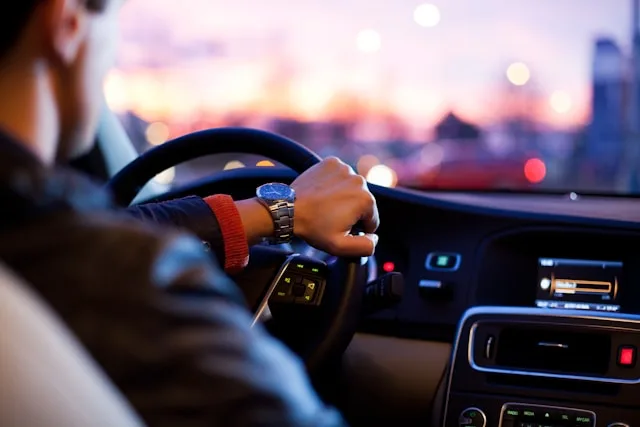Critical Errors to Avoid Following a Car Accident
Surviving a car accident can be a traumatic experience, leaving individuals shaken and uncertain about their next steps. In the aftermath, it becomes crucial to make well-informed decisions that safeguard both immediate well-being and long-term legal interests. This article aims to highlight prevalent mistakes often made after a car accident and offers detailed insights on how to sidestep them.
Mistake #1: Neglecting Medical Attention
Seeking immediate medical attention after a car accident is not merely advisable; it is imperative. Even seemingly minor injuries can escalate over time, and delaying treatment not only jeopardizes health but also impacts potential injury compensation. Consultation with a medical professional promptly is crucial. Frequently asked questions include:
What if I feel fine after the accident?
Even if you feel fine initially, some injuries may not manifest symptoms right away. Consulting a healthcare professional is advisable to rule out any hidden injuries.
Can I see any doctor, or should it be a specific type of medical professional?
While prompt medical attention is crucial, consulting with a healthcare professional experienced in treating accident-related injuries can provide more accurate assessments and documentation for your claim.
Mistake #2: Failing to Involve the Police
Neglecting to involve law enforcement after an accident is a significant misstep. A police report serves as a vital document, offering an official account of the incident that can play a pivotal role in legal proceedings. Common queries include:
Is it necessary to involve the police for minor accidents?
Yes, involving the police is essential regardless of the severity of the accident. A police report creates an official record, instrumental in establishing fault and determining liability.
What information should I obtain from the police report?
Ensure that the police report includes details such as the names and contact information of involved parties, witnesses, insurance information, and a narrative of the events leading up to the accident.
Mistake #3: Admitting Fault or Apologizing
Admitting fault or offering apologies at the accident scene can have significant repercussions in legal proceedings. It’s vital to refrain from making statements without consulting an attorney. Frequently asked questions include:
Should I apologize if I believe the accident was my fault?
It’s advisable to avoid making any statements that could be interpreted as an admission of fault. Wait until all facts are assessed and consult with legal counsel before making any statements.
Can my apology be used against me in court?
Yes, apologies or statements made at the scene can potentially be used against you. It’s crucial to consult with an attorney who can guide you on how to navigate conversations with other parties involved.
Mistake #4: Neglecting to Gather Evidence
Evidence is the foundation of any successful legal claim. Neglecting to document the accident scene, collect witness information, and take photographs can weaken your case significantly. Common questions include:
What evidence is crucial for a car accident claim?
Essential evidence includes photographs of the accident scene, damage to vehicles, any visible injuries, witness contact information, and the exchange of insurance information.
How can I obtain witness statements?
Approach witnesses calmly, collect their contact information, and ask if they would be willing to provide a statement later. Your attorney can guide you on how to formalize these statements for use in your case.
Mistake #5: Not Exchanging Information with the Other Driver
Neglecting to exchange essential information with the other driver is a common oversight that can complicate matters later. It’s imperative to gather necessary details promptly. Frequently asked questions include:
What information should I exchange with the other driver?
Exchange names, contact information, insurance details, and vehicle registration information. This information is critical for insurance claims and potential legal proceedings.
What if the other driver refuses to provide their information?
If the other driver refuses to share information, document the license plate number and contact the police. Do not attempt to resolve the issue without involving law enforcement.
Mistake #6: Delaying the Reporting to the Insurance Company
Promptly reporting the accident to your insurance provider is vital for the success of your claim. Delays can have a direct impact on the resolution of your case. Common questions include:
How soon should I report the accident to my insurance company?
Report the accident to your insurance company as soon as possible, ideally within 24 to 48 hours. This allows for a swift investigation and assessment of your claim.
What information should I provide when reporting the accident?
Be prepared to provide details such as the date, time, and location of the accident, a description of the events, names and contact information of involved parties, and the police report if available.
Mistake #7: Settling Too Quickly Without Legal Advice
Accepting a swift settlement offer without consulting an attorney is a risky move. Seeking legal advice ensures a comprehensive understanding of the full extent of your claim and helps you negotiate a fair settlement. Common queries include:
In conclusion, avoiding these mistakes in the aftermath of a car accident is paramount for protecting both immediate well-being and long-term legal interests. Remember, consulting with a San Fransico personal injury lawyer can provide personalized guidance tailored to your specific situation. Take the necessary steps to ensure a smooth and fair resolution to your car accident case.



